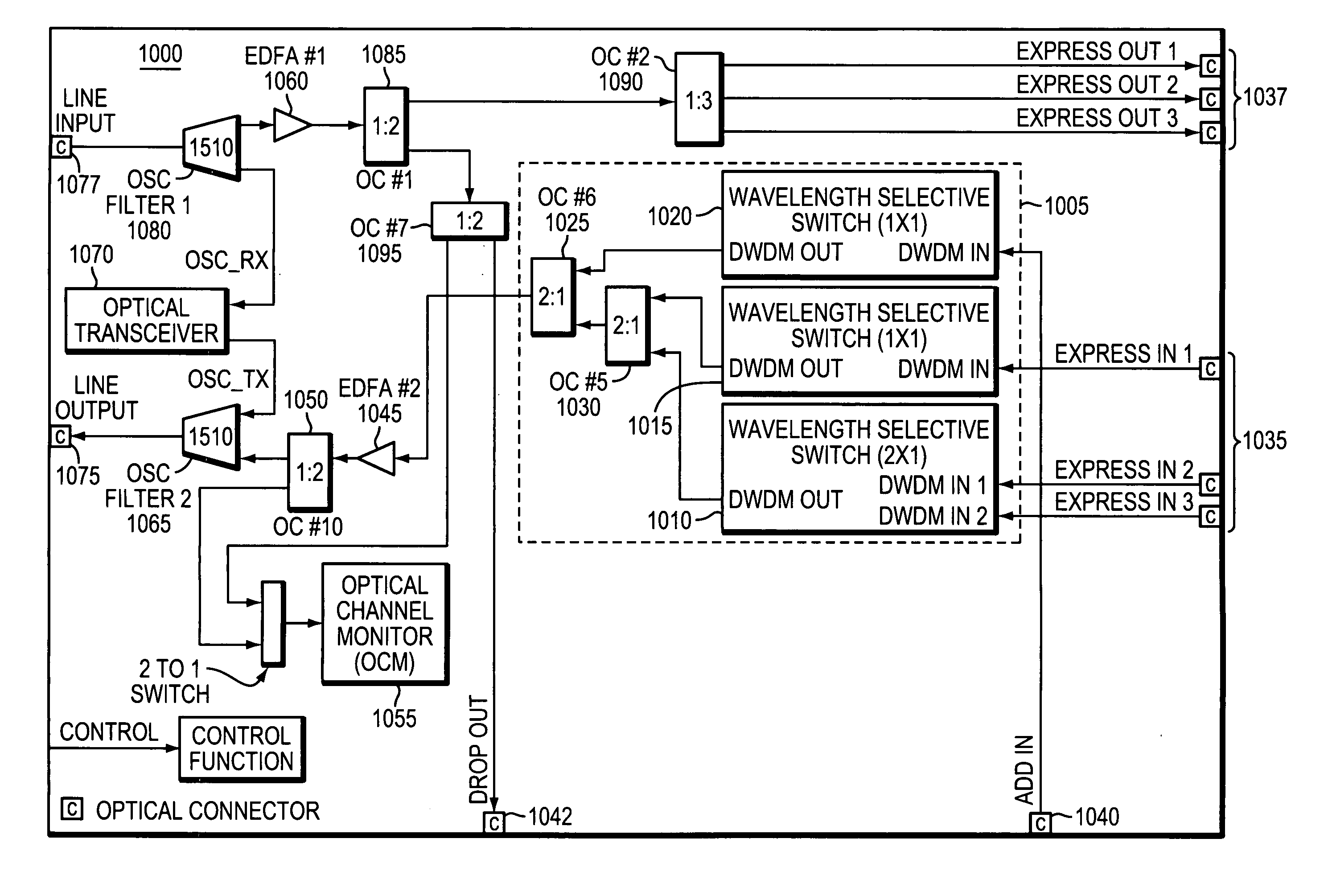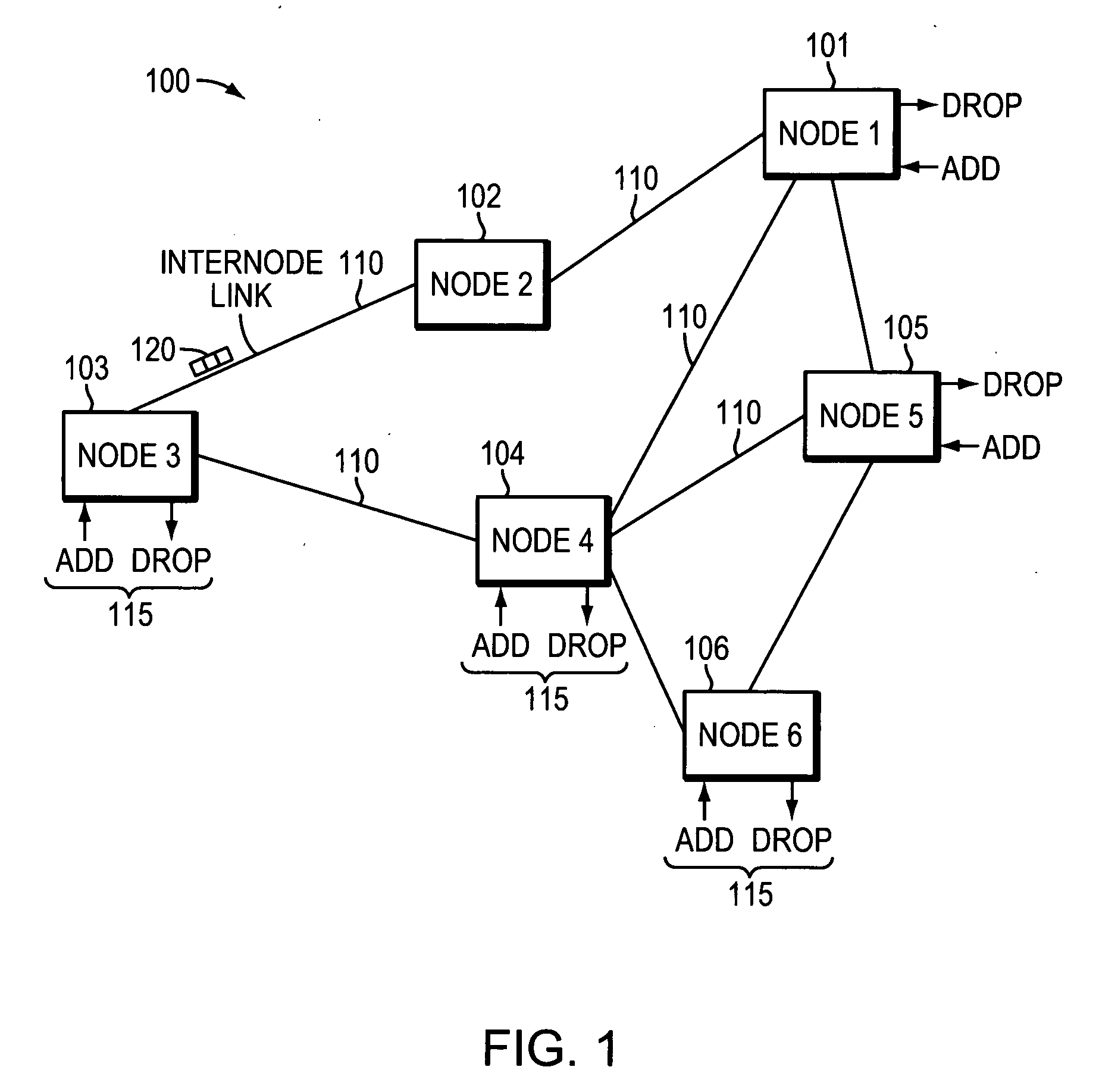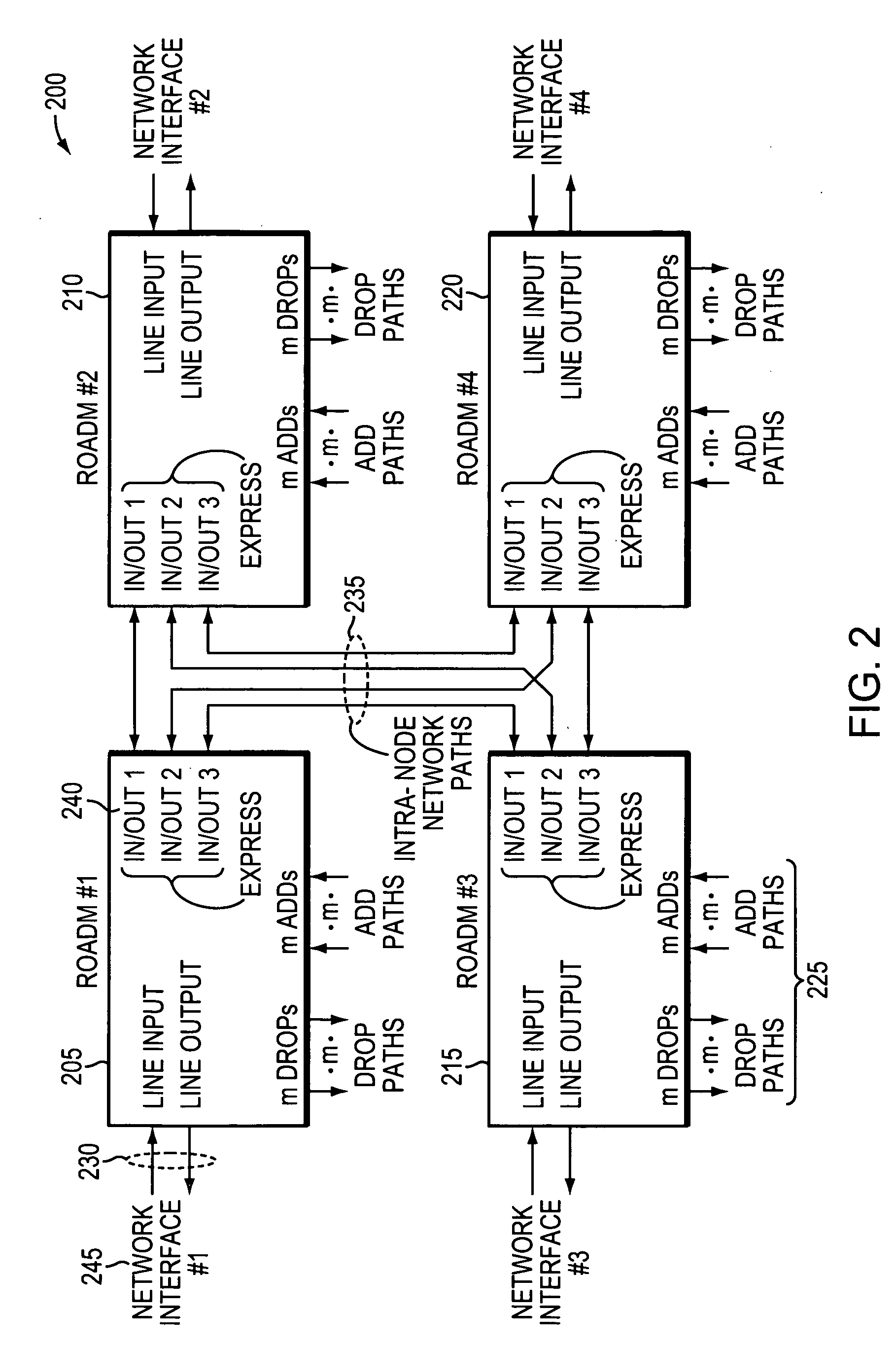Methods and apparatus for reconfigurable add drop multiplexers
a technology of add drop multiplexers and reconfiguration methods, which is applied in multiplex communication, instruments, optical elements, etc., can solve the problems of increased input-to-output insertion loss of input signals, complex design and construction of large wavelength selective switches, and inability to provide all inputs of each wss device, etc., to achieve less insertion loss and less insertion loss
- Summary
- Abstract
- Description
- Claims
- Application Information
AI Technical Summary
Benefits of technology
Problems solved by technology
Method used
Image
Examples
Embodiment Construction
[0041]A description of example embodiments of the invention follows.
[0042]Unless otherwise noted, all optical amplifiers may have gain that is fixed, variable, adjustable, programmable, or any combination thereof. Optical attenuators, including variable optical attenuators (VOAs), may optionally be placed in front of the fixed gain amplifier. Optical amplifiers may be erbium-doped fiber amplifiers, solid-state optical amplifiers, or any other suitable optical amplifiers. Optical characteristics, including gain, saturated output power, and noise figure, may depend on system requirements including, but not limited to, propagation loss, insertion loss, maximum optical power, minimum optical power, and system cost.
[0043]Similarly, unless otherwise noted, VOAs may be individual discrete VOAs, arrays of VOAs residing on a single silicon die (or other suitable substrate material), or any other suitable attenuator(s). Likewise, tunable filters may be individual discrete tunable filters, or ...
PUM
 Login to View More
Login to View More Abstract
Description
Claims
Application Information
 Login to View More
Login to View More - R&D
- Intellectual Property
- Life Sciences
- Materials
- Tech Scout
- Unparalleled Data Quality
- Higher Quality Content
- 60% Fewer Hallucinations
Browse by: Latest US Patents, China's latest patents, Technical Efficacy Thesaurus, Application Domain, Technology Topic, Popular Technical Reports.
© 2025 PatSnap. All rights reserved.Legal|Privacy policy|Modern Slavery Act Transparency Statement|Sitemap|About US| Contact US: help@patsnap.com



